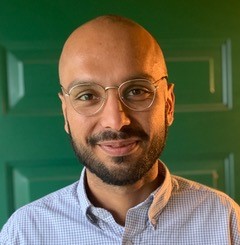Takeaway
The clinically excellent physician understands that male patients may need support sharing their perspectives.

Connecting with Patients | February 6, 2020 | 2 min read
By Kultaj Kaleka, MD, RN, Central Michigan University
Despite the hopefully positive influence of father figures on boys, many boys learn our society’s expectations of what it means to “be a man” from TV. Our culture seems to define masculinity with a firm handshake, the ability to “suck it up,” and to hide emotions, most notably sadness and fear. At least, this is the message many of my generation received.
I have meditated upon and worked towards addressing this misinformation. The imperative to unlearn this cultural expectation of “manhood” was recently highlighted in a patient interaction for what to many is the most intimate and visceral form of being: sexual function.
A young adult, an athletic male, firmly shook my hand as he introduced himself. As per my heuristic, this was a confident “real” man. However, as we sat down to discuss the reason for his visit, I knew something was amiss. Our eye contact was fleeting; I felt that he was avoiding my gaze.
He said haltingly, “You know, I sometimes have trouble getting it up. It’s causing some trouble with my girlfriend. I feel less of a man.”
Unfamiliar and uncomfortable with the topic, I took to intellectualizing and focused on the pathophysiology.
“Nicotine is a vasoconstrictor, it clamps down on the blood flow to your penis,” I told him. “Would you like to try Viagra?”
I explained how Sildenafil would alleviate his symptoms. I counselled him on smoking cessation. I tried my best to address his complaint while avoiding having to talk about his concern.
Changing the paradigm
I often ruminate on this encounter. Why is it that men don’t seek healthcare as often as women? Why is it that discussions about erectile dysfunction, depression, and prostates don’t take place among men? I believe it is partly because clinicians like me don’t recognize and exploit opportunities to change the paradigm. If my patients continue to “suck it up” and all I notice is them averting my gaze, how am I a good care provider or brother to my fellow man? If I am to engender trust in relationships with my patients, I have to question and address our shared identities and vulnerabilities.
Normalizing conversations around uncomfortable topics
Through a review of pertinent literature and conversations with colleagues and mentors, I have arrived at a different approach to addressing male health issues. To normalize conversations around potentially uncomfortable topics and invite patients to the discussion, I make overtures. I ask patients if they have experienced, for example, any erectile dysfunction, depression, or issues with alcohol. I let them know that these are common health issues affecting many men, and there is no shame in experiencing or addressing them. I try to help them carry the emotional burden related to these conditions. With the aim of overcoming stigma and acknowledging concerns, I voluntarily disclose my own struggles. I tell my patients, “I used to be a smoker. I remember the stronghold of addiction, and eagerly waiting for the first cigarette of the day. I understand how hard it is to quit.”
Connecting through our shared human vulnerability
Approaching these issues from the perspective of a shared common human vulnerability can allow for more open conversations. Letting patients know that their masculinity isn’t compromised through this vulnerability or discussing these issues is the way forward. We need to harness the power of this similarity and relatability. After all, we are all only sometimes patients and doctors, but always human.

